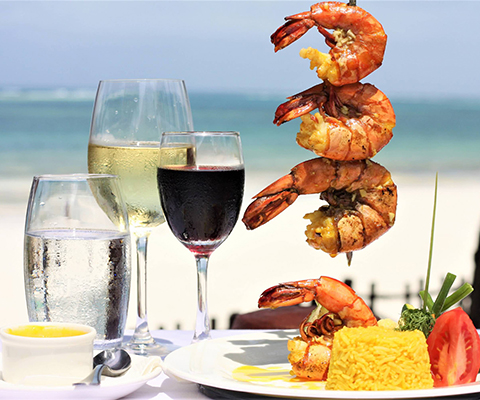By Juliet Anyango
Visiting a new country feels like learning a new dance, where the right steps are expected but unspoken. In your planned Kenyan trip, understanding the cultural etiquette can be the secret to not just being a visitor and being truly connected.
The wildlife, mountains, and coastal views will wow your eyes; it’s unforgettable. However, Kenya’s beauty is in its people and everyday customs that shape how life unfolds. The greetings, the meals, and how you blend in will give you the best experience.
Let’s explore how you can easily do this.
Always Start With a Greeting
You might not notice it right away, but in Kenya, greetings are essential and often reveal where you’re from. A cheerful ‘Jambo!’ might seem like a safe bet after a quick online search, but it’s rarely used outside touristy spots or the Swahili-speaking coast. In Nairobi, for instance, it’s a dead giveaway that you are not local.
Yet, that simple ‘hello’ in Swahili, ‘habari yako,’ will send your vendor smiling as they gently correct your pronunciation. Maybe teach you another word, ‘Karibu’ (you are welcome). These exchanges are how Kenyans welcome you in.
Dress Code: Blend In, Not Stand Out
Appropriate dressing is important when considering travel etiquette in Kenya. There is a range of fashion styles in urban areas (e.g., sleeveless tops and shorts), but in rural towns and religious places, it is best to cover your shoulders, cleavages, and clothes beyond the knees.
When you get invited to a friend’s home or church, think loose-fitting clothes. Tight and figure-revealing fits might invite some judgment.
Most men wear long trousers and shirts, while women wear skirts and dresses below the knee. Beachwear does not go beyond the beach. Walking the towns in bikinis or shirtless will appear culturally disrespectful. Save the beachwear for the coast to save yourself from the uncomfortable stares.
Dining and Food Etiquette in Kenya
Eating and sharing food is central to Kenyan customs and hospitality; it’s an act of connection.
If you’re invited to someone’s home, it’s considered a warm gesture. Arrive on time, and follow your host’s lead when it comes to customs. In most homes, handwashing before and after meals is the norm. You’ll likely be offered a basin and jug to do so at the table.
Depending on the setting, you may eat with your hands, especially when traditional dishes like ugali (maize meal) and sukuma wiki (collard greens) are served. Always use your right hand, as the left may be considered unclean for eating in some cultures.
Portion control matters; start small, and feel free to accept second helpings. Leaving too much food may be seen as wasteful, and in Kenya, food and water are respected resources.
In many homes, men are served first, followed by children and women. Among more traditional communities like the Samburu, cultural rules might mean that warriors avoid eating with women or children eat separately.
During celebrations, you might encounter nyama choma (roast meat), a beloved common delicacy, especially goat, served with kachumbari (fresh tomato and onion salsa). It’s a key feature at gatherings and a culinary expression of joy.
Tea, especially in the afternoon, is a staple across homes and businesses; don’t be surprised if you’re offered a strong cup of chai during any visit.
When in doubt, observe. Kenyans will often guide you with warmth and patience.
How to Behave Politely In Kenya
One thing you’ll notice fast? Kenyans are warm, polite, and always ready with a smile.
Listen patiently and always wear a smile; the locals will easily reciprocate. Before any interaction, throw in some talk, some friendly conversation. Ask someone how their day is going before diving straight into business.
When navigating outdoor markets, bargaining is part of the fun, but it’s not a battle; be polite while at it. Always greet the seller; look them in the eye. A warm ‘Habari yako?’ goes much further than a cold counteroffer. Similarly, offering to help someone carry something, holding a door, or simply taking the time to listen in a casual conversation speaks volumes.
These thoughtful acts are the unwritten rules of Kenyan travel etiquette, and when you embrace them, you’ll find people more open, helpful, and genuinely glad to have you around.
Time flows differently here. Schedules are more fluid, so pack a little patience (services may delay).
Do’s and Don’ts in Kenya
When there are so many rules in any place, it starts to feel boring. So let me leave you a cheat sheet that will guide your travels on the do’s and don’ts.
Travel Etiquette Kenya: Do’s
- Greet people you meet when walking into their spaces , a shop, home, or just interacting before boarding a bus.
- Respect for elders: greet them first and give them space to speak
- Always use the right hand, especially when handing and receiving gifts or money.
- Learn a few Swahili words; we all love it when visitors show effort. ‘Pole’ for ‘sorry’ and ‘asante for ‘thank you’ will make interactions warmer.
Travel Etiquette Kenya: Don’ts
- Don’t point fingers: most locals find it rude. Use your hand to gesture; it’s more polite
- Don’t display affection publicly: holding hands may be okay, but kissing and too much hugging, especially between couples, could be met with frowns
- Don’t assume uniformity: Kenyan customs are diverse and can vary from one region to another. What is acceptable in Nairobi might not fly in a coastal town or lake region.
Cultural Taboos and Sensitive Topics
There are lines you don’t want to cross regarding conversations in Kenya. A big one? Politics. It’s a passionate topic, especially around election seasons. It’s better to keep things neutral unless you’re close with someone or invited into the discussion.
Religion is also a tender subject. Kenya is home to many faiths, including Christianity, Islam, and indigenous beliefs, and spiritual practices are often part of everyday life. Jokes or critiques of religion or traditional practices can easily be misinterpreted. Respect is key here. You’ll hear ‘God is good’ as often as ‘hello.’ Always ask before taking pictures in these places, refrain from interfering with services, and take off your shoes in certain places of worship if necessary (common among Muslims). A little mindfulness can make a big difference.
Another one of those unspoken Kenyan customs is avoiding overly personal questions like ‘What tribe are you?’ or ‘How much do you earn?’ These might feel normal elsewhere but are considered intrusive here, especially early on.
Practicing cultural respect in Kenya means knowing when to ask, when to listen, and when to simply observe. It’s not just polite; it’s appreciated.
Counterculture in Kenya
Forget what the Western media might have you believe. If you’re picturing Kenya as a land frozen in time, with only traditional dress and ancient rituals, think again.
Kenya’s cities pulse with modern energy. From graffiti-tagged alleys in Nairobi’s creative hubs to viral TikTok dances and street fashion inspired by both global and local trends, the country’s youth are rewriting the script.
There’s a bold counterculture rising, expressive and unafraid to challenge norms. Yet, it coexists with long-standing customs. You’ll find a young professional slaying corporate goals by day and still helping out with a family meal in the evening. Many Kenyans, especially the youth, have mastered the art of walking between two worlds, embracing global influences while honoring tradition.
This duality is something you want to respect. Good travel etiquette means observing with curiosity, not judgment. If something surprises you, it’s okay to ask questions; just do so with humility and an open mind. That’s the real heart of cultural respect in Kenya.
Celebrations and Ceremonies
Kenyan life is filled with events; there’s always a celebration. From traditional weddings to rites of passage ceremonies. These events are deeply rooted in Kenyan customs that connect generations.
You might witness an initiation ceremony where boys are welcomed into manhood in the Luhya and Kalenjin circumcision ceremonies. If you get an invite, be respectful. Dress nicely, bring a small gift if possible, and follow your host’s lead.
Music, dance, and art
From tribal drumbeats to Gengetone (street genre), music is the soul of Kenya. You’ll hear it in buses and on street corners
Dance isn’t reserved for stages; it’s how many Kenyans express joy and identity.
Don’t just observe; join in. Learn a dance move. If you really want to feel the soul of Kenya, just follow the beat. Music and dance are a huge part of Kenyan customs; they tell stories, mark milestones, and bring people together in ways words sometimes can’t. Every region has its own rhythm. At weddings, the Luhya’s Isukuti drums will test your dancing skills in the best way. While the Maasai’s famous Adumu (yes, the jumping dance) is a display of pride and tradition. The Luo’s Dodo is all about storytelling in motion with great steps and ululations.
In more laid-back corners of Kenya, you might catch the Kamba women performing Kilumi, a drum ritual calling for rain or healing , all deeply rooted in cultural etiquette passed down through generations.
If not joining in a dance, maybe enjoy purchasing a handcrafted item; the Kenyan flag bracelet has become a worldwide identity.
Embracing Kenya’s warmth and diversity
Kenya is beyond breathtaking safari and scenery. Every handshake, song, and meal shared there reveals a new tale.
Respecting Kenyan travel etiquette opens doors that the media is unable to highlight. Make it a connection rather than just a journey. The stories will come to you naturally if you respect the traditions and maintain your curiosity.
So, are you ready to explore Kenya? Head over to travelmoran.com and start building your dream itinerary. We’ve got the best destinations, activities, and tips to make your trip unforgettable










